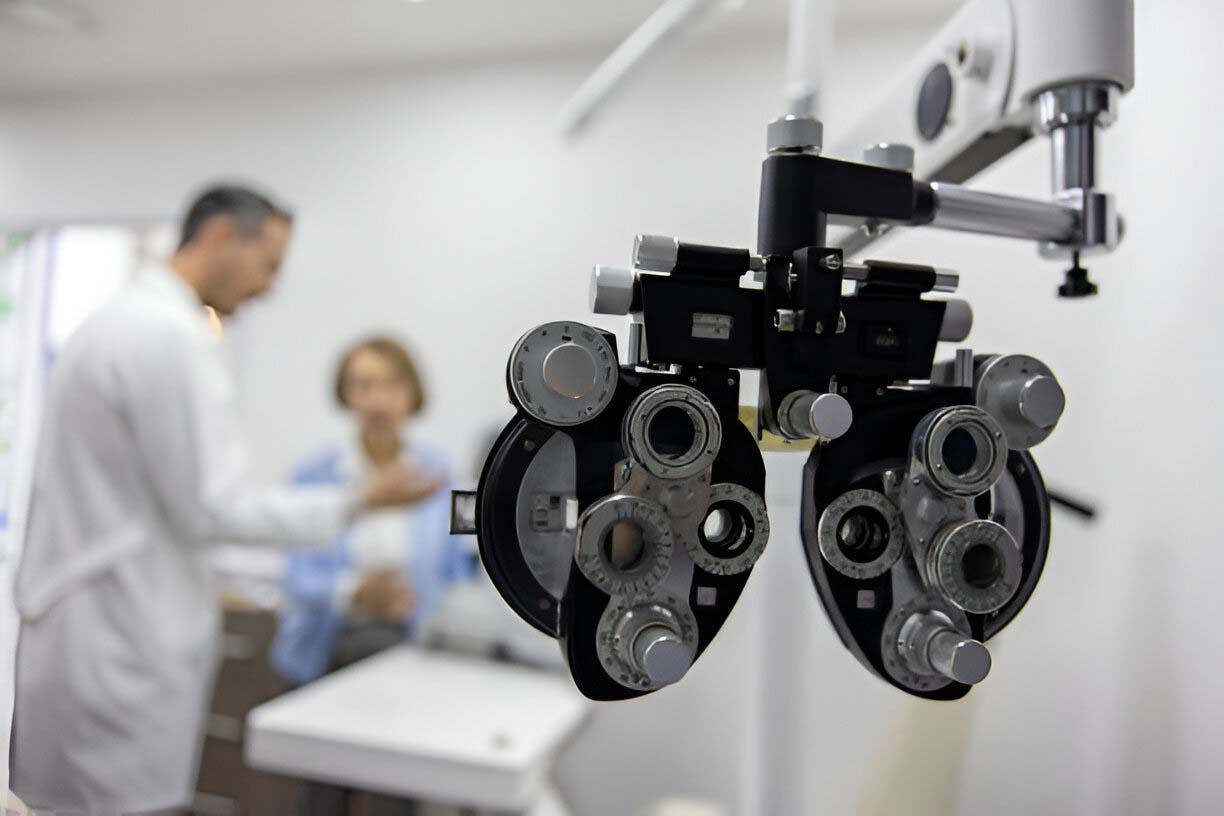Everyone wants to live longer—but what’s the point of doing so if you can’t enjoy your later years? That’s why it’s so crucial to stay in the pink of health, too. We’ve noted that a healthy diet alone can nourish your body so you have the immunity, mental clarity, and vitality you need to live a longer life to the fullest. However, you’ll also want to maintain your independence.
The ability to go about your day-to-day routine on your own, whether that involves feeding or bathing yourself, driving yourself around, or even reading or watching your favorite books and TV shows, is essential to your well-being. Without that independence, you’re more likely to experience a lower quality of life. Unfortunately, the natural aging processes your body goes through can hasten how quickly you become dependent on others.
That’s especially apparent when you consider your eyesight. Once you’re past 40, you’re more likely to develop presbyopia (age-related farsightedness). Since it naturally occurs as the eyes lose elasticity and their ability to focus on nearby objects, it’s a pretty common condition that affects over 1.8 billion people worldwide. That includes roughly 128 million older American adults. Fortunately, there are now plenty of ways to manage presbyopia and maintain your independence for longer.

Managing presbyopia with your eye doctor
After experiencing symptoms like headaches, eye strain, and trouble seeing things up close, you’ll probably want to book an eye exam and consult an optometrist to confirm your presbyopia diagnosis. Given how this condition can make it more challenging to accomplish vision-related tasks—which can cover multiple aspects of your daily routine, from reading to driving—you may want to discuss the following treatment options with them to see which method for managing presbyopia best suits your needs:
Reading glasses
These are the most popular vision aids for presbyopia management, thanks to the ease of use they provide. Much like regular prescription eyewear, reading glasses correct the condition by magnifying what you’re looking at, allowing for clear vision and preventing eye strain. Today’s innovations in this product mean you can now choose lenses that suit your particular lifestyle, with Readers’ online selection showing you can get reading sunglasses like the Carmen if you like spending time outdoors and blue light-blocking models like the Lancelot for constant device use. Those options might make these specs the most suitable method of treatment for you.
Multifocal contact lenses
If you prefer contact lenses for their convenience and sharper vision correction, don’t worry—researchers have come up with versions of this corrective aid that even presbyopes can use. Notably, OptaCon released the ZOOM refractive multifocal contact lenses. These are specifically designed to treat the condition by preserving both near and far vision, all while maintaining visual contrast. The OptaCon Zoom was recently rated safe and effective for treating presbyopia in a 2024 Nature study.
Surgical interventions
Presbyopia can worsen before you turn 65, and an ophthalmologist may recommend surgical interventions if your particular case of the condition becomes more severe. The most popular procedure is LASIK, a kind of refractive surgery that uses a laser to reshape your cornea and more quickly and permanently restore your eyes’ ability to see things up close. However, you can also get a corneal implant. Synthetic, intraocular lenses can replace your current, natural lenses to drastically reduce symptoms of presbyopia. Be sure to discuss your options with an eye care professional to assess the risks of each procedure and determine if you should elect to undergo one of these surgeries.

Managing presbyopia at home
In addition to the above treatment options, you can also try these tips to manage presbyopia while performing your usual tasks.
Use prescription eye drops
To supplement the benefits of corrective aids like reading glasses and contact lenses, you can use prescription eye drops specifically designed for presbyopes. The ones from Vuity, in particular, leverage an active ingredient called pilocarpine. It works by constricting the pupil, allowing light to better concentrate on the retina to improve your near vision.
Pilocarpine is also used to treat other age-related eye conditions like glaucoma. If you’re diagnosed with a similar condition down the line, that means you can use these eye drops once a day to hit two birds with one stone, manage multiple vision issues at once, and maintain your independence more effectively as you get older.
Ensure well-lit environments
Presbyopia also makes it hard to see in low-light conditions, so it’s worth better illuminating your work and home environments. Install or use fixtures like overhead bulbs and desk lamps wherever you do the most vision-related tasks, like reading. If you frequently use digital devices, always adjust the brightness settings to your preferences to prevent symptoms like headaches and eye strain.
Rest your eyes as often as possible
Taking breaks from prolonged periods of near work is crucial because eye fatigue can hasten presbyopia progression. Aside from using the proper corrective aids and light fixtures to make things easier on your eyes, it’s thus essential to follow methods like the 20-20-20 rule. Even quick, 20-second breaks every 20 minutes can relax the eye muscles, especially if you look at something 20 feet away to help your eyes maintain their ability to switch between near and far vision.
Presbyopia exemplifies just how quickly natural aging can take away from your independence and overall quality of life. By following these tips, you can better care for your aging eyesight, preserve that independence, and live life to the fullest for longer.
Keep reading here on We Heart for more insights on health, arts, culture, and beyond!








